If your gut feels off, your body might be trying to tell you something—and the solution could be as simple as what’s on your plate. While over-the-counter remedies offer quick fixes, nature has its own lineup of digestive superheroes hiding in plain sight. These 10 everyday fruits are packed with fiber, enzymes, and anti-inflammatory compounds that gently support smoother digestion, reduce bloating, and help keep things moving. Whether you’re dealing with constipation, heartburn, or an unpredictable stomach, adding these natural options to your daily routine might be exactly what your system needs to feel balanced again—no prescription required.
1. Bananas: The Gentle Stomach Soother

Ever noticed how bananas are often recommended when you’re sick? These yellow powerhouses contain soluble fiber and resistant starch that act like a broom for your digestive system. They help regulate bowel movements while feeding the good bacteria in your gut.
What makes bananas truly special is their gentle nature on irritated stomachs. When digestive discomfort strikes, their soft texture and easy-to-digest carbohydrates provide quick energy without further irritation.
For those with acid reflux, bananas have natural antacid effects that help neutralize stomach acid. Plus, they’re portable and require zero preparation – nature’s perfect digestive medicine on the go!
2. Apples: Crisp Regularity Promoters
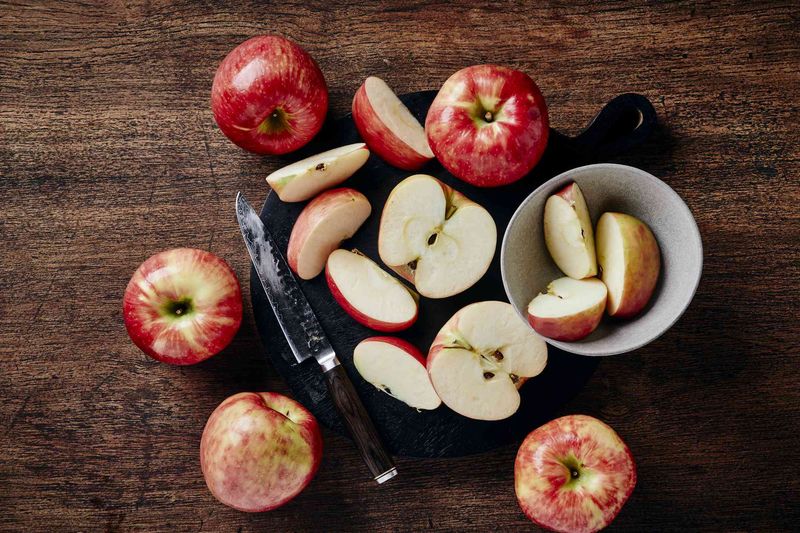
Crunching into a juicy apple delivers more than refreshment – it’s a digestive powerhouse in disguise. The magic lies in pectin, a soluble fiber that transforms into a gel-like substance in your digestive tract, helping waste move smoothly through your system.
An apple a day might actually keep digestive troubles away. Their fiber content adds bulk to stool while pulling water into your intestines, making them natural constipation fighters.
The skin contains valuable anti-inflammatory compounds that may help reduce acid reflux symptoms. Remember to eat apples with their skins for maximum digestive benefits, though washing thoroughly is essential to remove any pesticide residue.
3. Papaya: Tropical Digestive Enzyme Powerhouse
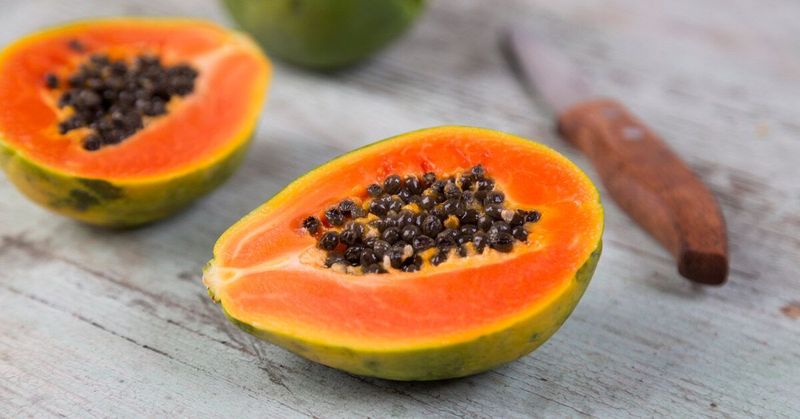
Hidden within the vibrant orange flesh of papaya lies papain, a remarkable enzyme that breaks down proteins in your food. Ancient cultures have long treasured this tropical fruit for its digestive healing properties.
Papaya works like a natural meat tenderizer in your stomach, making nutrients more accessible and reducing the work your digestive system must perform. Many people find that eating papaya before or after protein-heavy meals helps prevent that uncomfortable, overly full feeling.
Beyond protein digestion, papaya soothes inflammation in your digestive tract and can significantly reduce bloating. Its fiber content adds another layer of digestive support, making it a complete package for gut health.
4. Pineapple: Inflammation-Fighting Digestive Aid

The sweet-tart flavor of pineapple hides a secret weapon for your digestive system – bromelain. This powerful enzyme complex actively breaks down proteins, potentially easing digestion after heavy meals.
Unlike many enzymes that get destroyed by stomach acid, bromelain remains active throughout your digestive tract. It works directly on inflamed tissues, potentially reducing swelling and pain associated with conditions like inflammatory bowel disease.
Fresh pineapple offers the highest bromelain content, as the canning process can destroy some of these valuable enzymes. Adding a few chunks to your morning smoothie or enjoying them as a post-dinner treat can help transform your digestive health over time.
5. Kiwi: Small Fruit, Mighty Digestive Impact
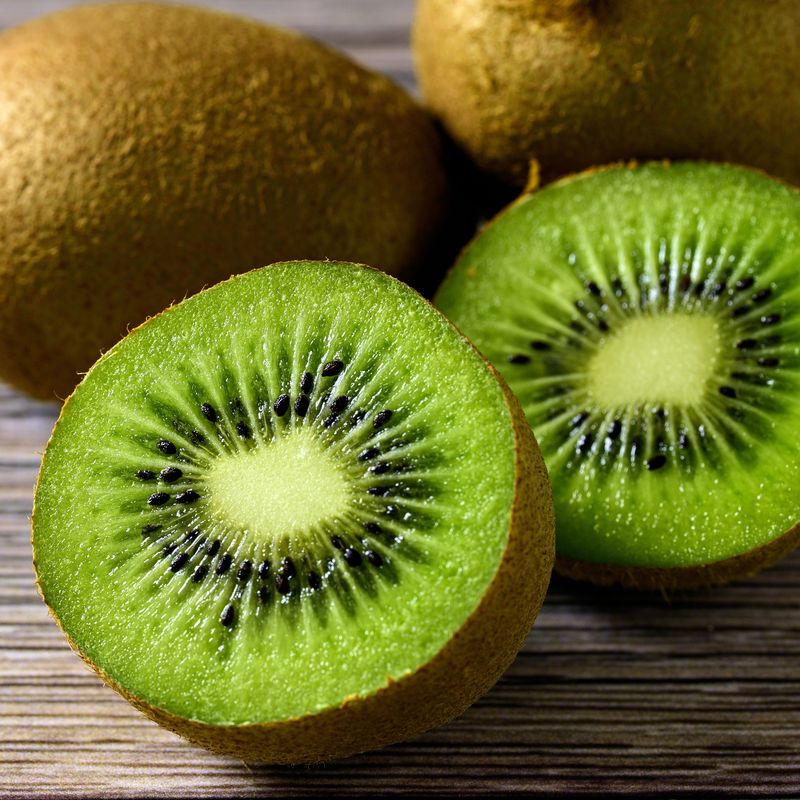
Don’t let the small size fool you – kiwis pack a powerful digestive punch thanks to actinidin, a unique enzyme that helps break down proteins. Studies show eating two kiwis daily can significantly improve digestion and reduce uncomfortable gut symptoms.
Beyond enzymes, kiwis offer an impressive fiber-to-calorie ratio. That fuzzy brown exterior contains insoluble fiber that sweeps through your digestive tract, while the green flesh provides soluble fiber that feeds beneficial gut bacteria.
The high vitamin C content in kiwis supports your gut lining’s integrity, potentially reducing inflammation and strengthening your digestive defenses. Their natural laxative effect makes them particularly helpful for those struggling with constipation.
6. Pears: Juicy Bowel Movement Regulators
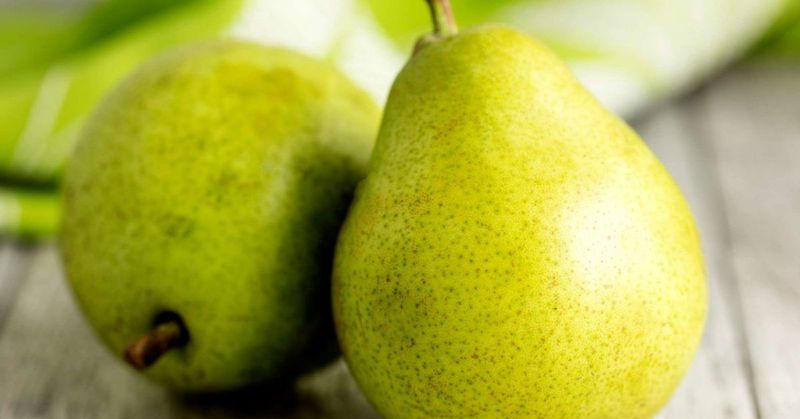
Biting into a ripe, juicy pear delivers a perfect storm of digestive support. These sweet fruits contain a special combination of soluble and insoluble fiber that works wonders for regularity issues.
The high water content in pears (over 80%) combines with their fiber to create the ideal consistency for smooth, comfortable bowel movements. Many natural health practitioners recommend pears for both constipation and diarrhea because they help normalize bowel function regardless of your starting point.
Pears are particularly gentle on sensitive digestive systems and rarely trigger allergic reactions. For maximum digestive benefits, eat them with the skin on – just be sure to wash thoroughly first.
7. Berries: Colorful Gut Microbiome Supporters
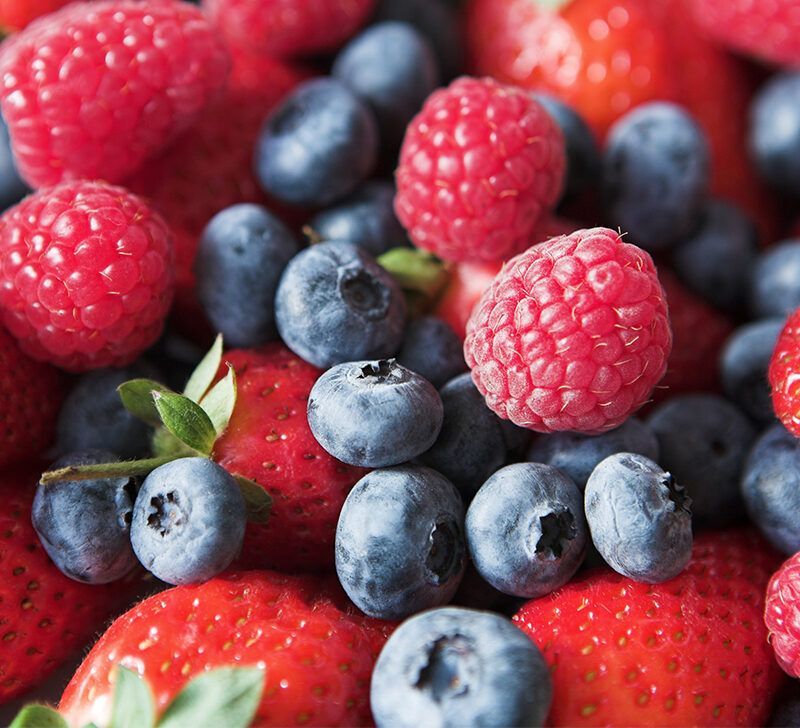
Those tiny seeds in raspberries, strawberries, and blueberries aren’t just for show – they’re packed with insoluble fiber that helps move food through your digestive tract. The vibrant colors signal powerful antioxidants that fight inflammation throughout your gut.
Berries contain special compounds called polyphenols that act as prebiotics, feeding the beneficial bacteria in your intestines. When these good bacteria thrive, they produce short-chain fatty acids that nourish your colon cells and improve overall digestive function.
Fresh or frozen, berries deliver similar digestive benefits. Their natural sweetness makes them an easy addition to yogurt, oatmeal, or smoothies – simple ways to boost your digestive health while satisfying your sweet tooth.
8. Oranges: Citrus Hydration For Smooth Digestion
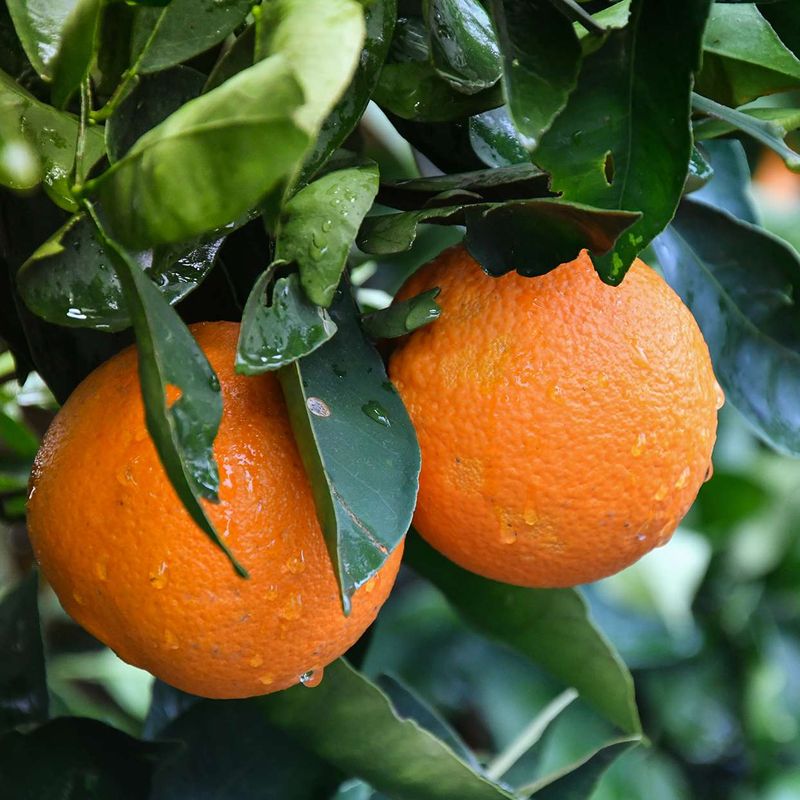
Peeling an orange releases more than just that distinctive citrus aroma – you’re unwrapping a complete digestive health package. The combination of water, fiber, and essential nutrients makes oranges particularly effective for keeping your digestive system running smoothly.
Oranges contain both soluble and insoluble fiber, with the white pith between the flesh and peel being especially rich in soluble fiber. This helps regulate the speed of digestion and stabilizes blood sugar levels after eating.
The vitamin C in oranges isn’t just for immune support – it helps maintain the integrity of your gut lining, potentially reducing leaky gut issues. Their natural acids can also stimulate digestive enzymes, improving overall nutrient absorption.
9. Grapes: Tiny Fruits With Dual-Fiber Benefits

Pop a handful of grapes and you’re treating your digestive system to a perfect balance of soluble and insoluble fiber. This dual-action approach helps regulate everything from transit time to stool consistency.
Grapes contain unique antioxidants called resveratrol and quercetin that reduce inflammation throughout your digestive tract. Research suggests these compounds may help prevent gut barrier dysfunction and reduce the risk of inflammatory bowel conditions.
The high water content in grapes (about 80%) helps keep your digestive system hydrated and moving smoothly. Red, green, or black – all varieties offer similar digestive benefits, though purple and red grapes contain higher levels of certain beneficial compounds.
10. Cherries: Ruby-Red Inflammation Fighters
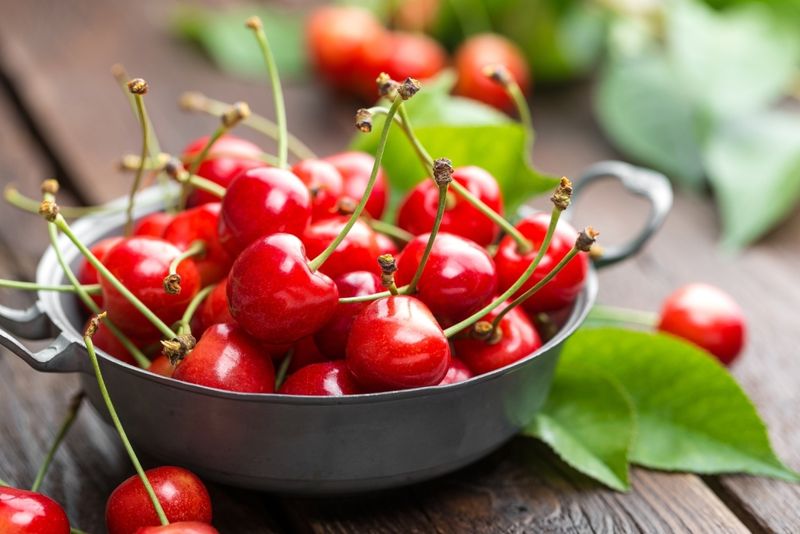
Those glossy red cherries aren’t just delicious – they’re packed with anthocyanins that actively combat inflammation throughout your digestive system. These powerful compounds give cherries their vibrant color and may help soothe conditions like irritable bowel syndrome.
Cherries provide a good mix of soluble and insoluble fiber to support regular bowel movements. Their natural compounds may also help reduce stomach acid production, potentially easing symptoms of acid reflux and heartburn.
Fresh cherries offer the most digestive benefits, but frozen or dried varieties (without added sugar) can be good alternatives when fresh isn’t available. Just remember that dried cherries are more concentrated in calories and natural sugars, so portion control is important.
Leave a comment